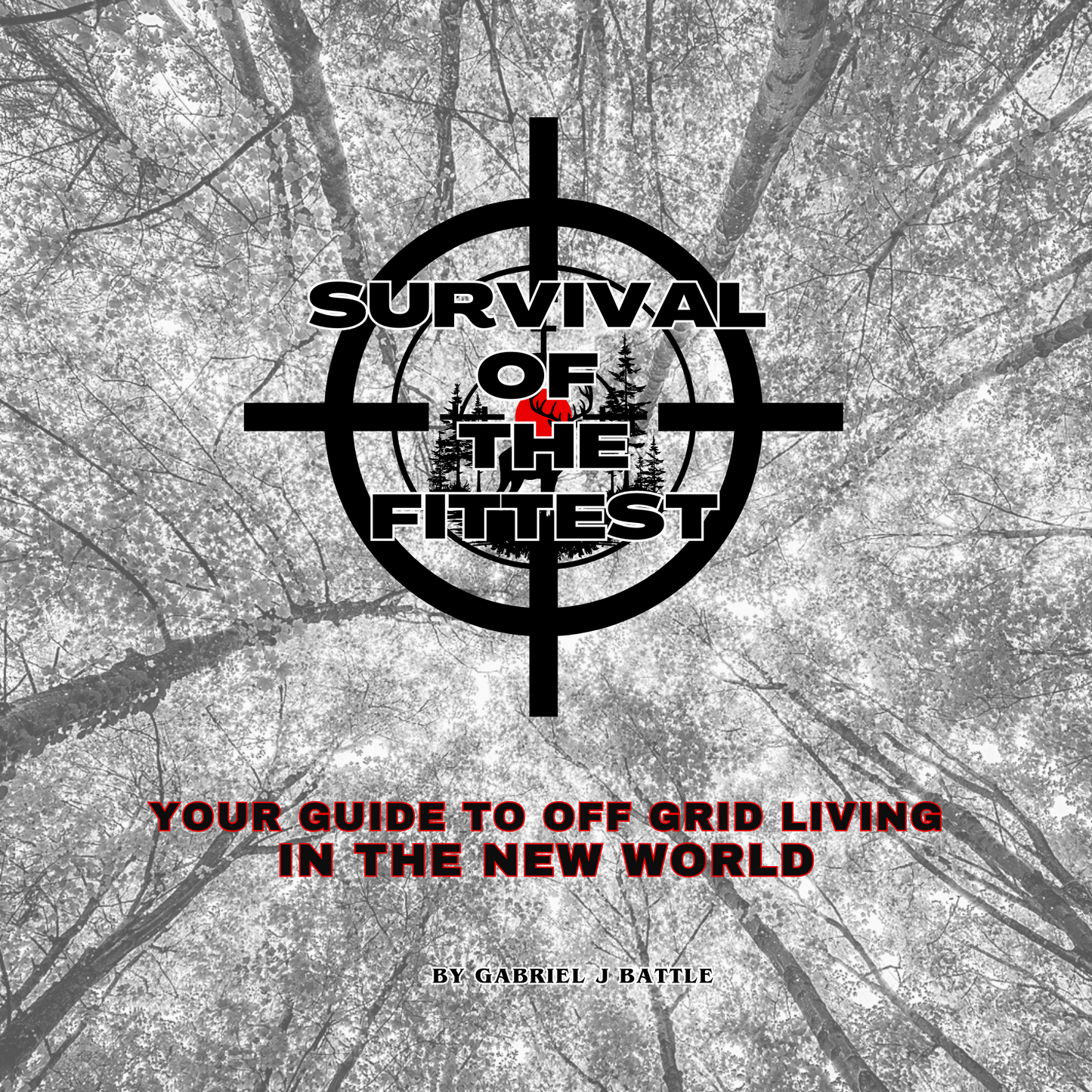Rich Society
Survival of The Fittest
Survival of The Fittest
Couldn't load pickup availability
Get instant access to Survival of The Fittest E-Book after purchase and start transforming your productivity today!
1. Self-Defense: In a government-independent setting, personal safety becomes paramount. Learning self-defense techniques and possibly owning and responsibly using firearms can be essential for protection.
2. Food Procurement:
- Hunting and Fishing: Knowing how to hunt game and fish for sustenance is crucial.
- Foraging: Identifying edible wild plants, mushrooms, and other natural resources can supplement your diet.
- Gardening and Farming: Growing your own food through gardening or farming is essential for long-term sustainability.
3. Water Sourcing and Purification: Understanding how to find and purify water from natural sources is vital. Investing in a water filtration system is also advisable.
4. Shelter Building: Knowing how to construct and maintain shelters using natural materials is important for protection from the elements.
5. Fire-Making: Fire provides warmth, cooking, and a sense of security. Learn various methods for starting and maintaining fires.
6. First Aid: Basic first-aid skills can be lifesaving. Knowledge of herbal remedies can also be beneficial in the absence of modern medical care.
7. Navigation: Familiarize yourself with map reading, compass use, and natural navigation methods to avoid getting lost.
8. Communication: While trying to live off-grid, you may still need to communicate with others. Ham radio operation and other forms of long-range communication can be essential.
9. Energy Generation: Generating power through renewable sources like solar panels or wind turbines can provide electricity for various needs.
10. Waste Management: Implement safe and sustainable methods for disposing of waste and sanitation, such as composting toilets.
11. Resource Preservation: Learn how to reuse, recycle, and preserve resources to extend their lifespan.
12. Bartering and Trade: In a government-independent setting, a barter system may become more common. Develop negotiation and trade skills.
13. Community Building: Forming or joining a like-minded community can provide support and shared resources. Building strong relationships with others is crucial for long-term survival.
14. Legal Knowledge: Understand the local and regional laws and regulations that may still affect your activities.
15. Self-Reliance Mindset: Develop a resilient and adaptable mindset. Be prepared to continuously learn and adapt to changing circumstances.
16. Basic Mechanical and Repair Skills: Knowing how to fix essential tools and equipment is crucial for long-term self-sufficiency.
17. Food Preservation: Learn techniques like canning, drying, and fermenting to store food for extended periods.
18. Weather Prediction: Understanding local weather patterns can help you prepare for extreme conditions.
19. Basic Carpentry and Construction: Being able to build and repair structures is valuable for creating and maintaining your living space.
20. Wildlife Knowledge: Understanding the local wildlife and how to coexist with or deter them can help protect your resources and safety.
It's essential to remember that living independently of a government is a significant undertaking, and it may not be suitable for everyone. Thorough research, preparation, and ongoing learning are key to successfully embracing this lifestyle. Additionally, consulting with experts and experienced individuals in the field can provide valuable insights and guidance.
Share


